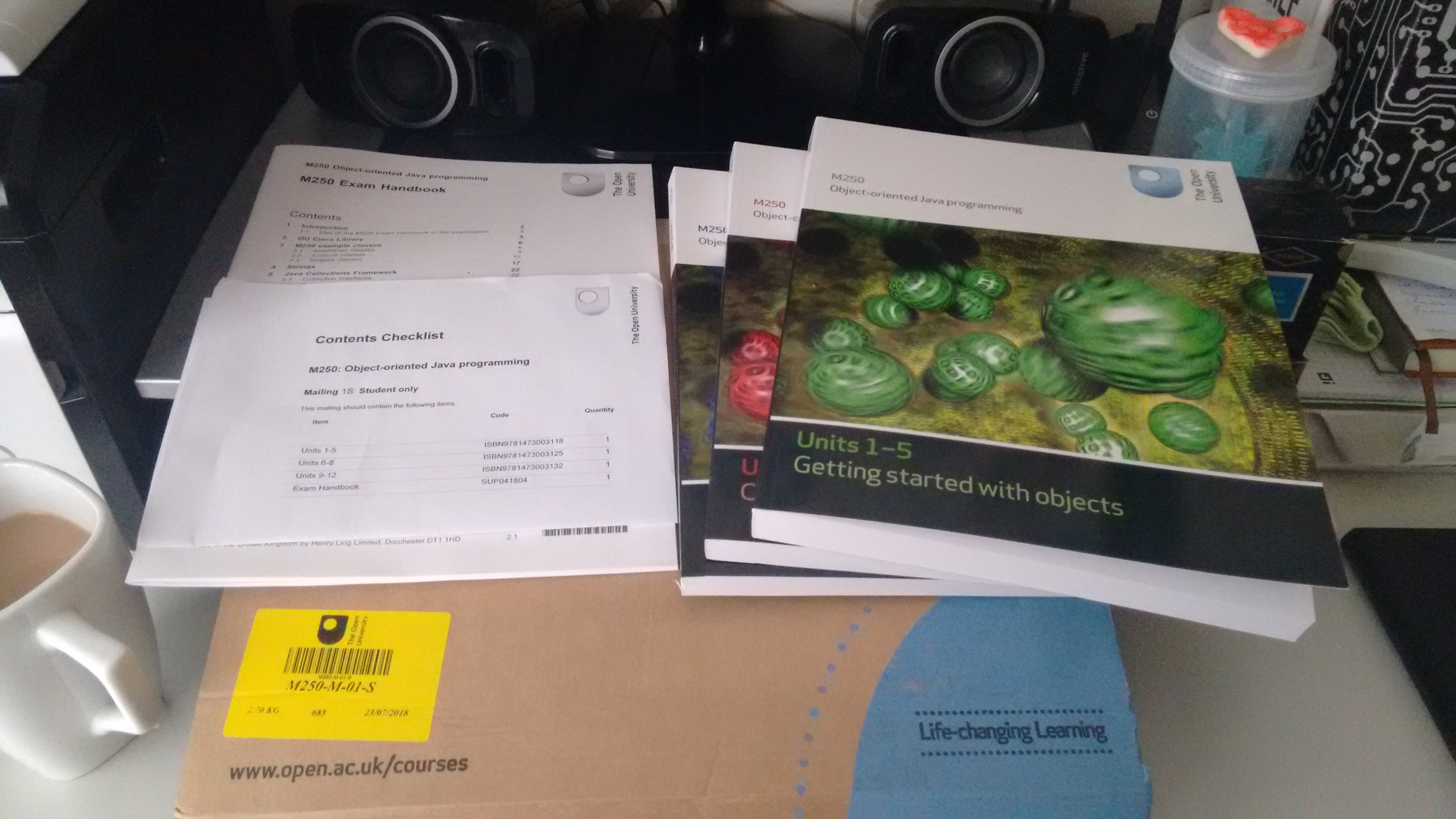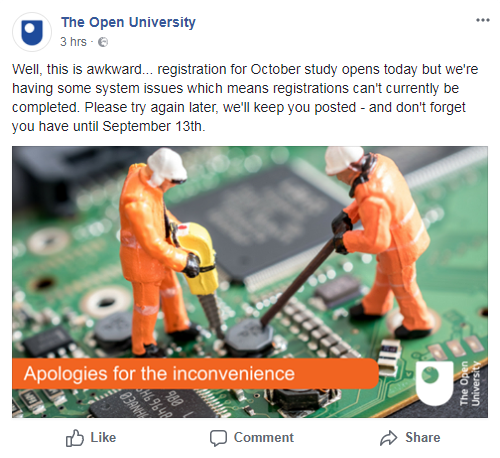Related to the service management studies of TM254, I have a hard Rule Number 1 for service transition: Never make a change on a Friday. (Ask any IT professional why.) For whatever reason, this hasn’t been implemented into ITIL, yet, but I’ll continue my campaign.
Likewise, I’ve recently started to note a de facto Rules Number 1 & 2 for Open University study: Get ahead of the study planner, and Stay ahead of the study planner. I’ve given this advice here a few times, now, but it’s actually becoming my default advice to any new student. You never know what challenges are going to come at you during your module, but you can be pretty much guaranteed they’re coming. The last thing you need when dealing with real-life tragedy is trying to play catch up in your studies.
With this in mind, I’ve gone through the module guides and first units of each module, to get a feel of what I’m in for this year.
I’m impressed with the level of discussion in both modules, but particularly in TM254. I find myself almost having arguments with the material, and either coming around to its way of looking at things, or at least being able to better defend my viewpoints when I disagree. This is sure to continue to be the case with the service management block of TM254, but I’m hoping to have similar challenges with the discussion in the other blocks. Also, I enjoy that the module discusses that ITIL has specific best practices for service management, but rather than having students memorise them, it simply discusses that a best practice will need to be considered and arrived at, but leaves the specific practices considered up to the student. It isn’t providing a solution, but a way to frame the problem so that it’s easier to find a solution.
One unfortunate aspect of TM254 is that when it says the workload for a task is three hours, I’m not getting away with just putting in two. They’ve done too good a job estimating my ability to grapple with the materials. It’s going to take a lot of time this year.
M250, on the other hand, is almost exactly what I expected to find. It’s a mature module, and has all the hallmarks of an OU module with a module team who has adapted as students have fed back their reactions to the materials. The software installation, for example, has been dumbed-down to an insanely simple drag-and-drop affair, with the drawback that you have to kind of take it as it is. It’s not going to want to work outside of a drive’s root (for Windows computers) without considerable work.
There’s also an active campaign at the beginning of the module that feels like they’re encouraging students to drop the module rather than do poorly on it. While I appreciate that this can definitely benefit a student who is spending their own money on a university degree, I wonder if it might be motivated by internal evaluation factors of the module team. Regardless, for those students willing to stick it out, there’s an enormous amount of support that likely wasn’t there for the first run, such as programming bootcamp exercises, quizzes, forums for helping get up to speed and even collaborate on approaches to assessment questions (though of course not actual solutions). It’s not as supportive as MST124 was, but it’s another good example of a mature module better supporting students with challenging material.
Both modules have significant portions devoted to group work. I refer you to the Linear Sequence of Strife. TM254 even goes so far as to having students determine a group name, so clearly somebody’s been watching too much Apprentice. Which is everybody who’s watched the Apprentice. I honestly go into these assuming I’ll have to cover all the bases myself (or at least making sure it’s clear I’ve gone at least as far as boundaries allow), so any help I get will be a nice surprise. I should probably be more concerned with bad help than no help, but so long as someone’s willing to try, we can all help get the standards of work up.
I don’t think M250 will give me much in the way of headaches, though I have been warned about it. We’ll see, but I honestly think any time sink to come from M250 will be me playing with it for giggles rather than frustration with an assignment that won’t work. (Working code is always a bonus, but I’m not silly enough to believe it’s an actual requirement to passing!)

